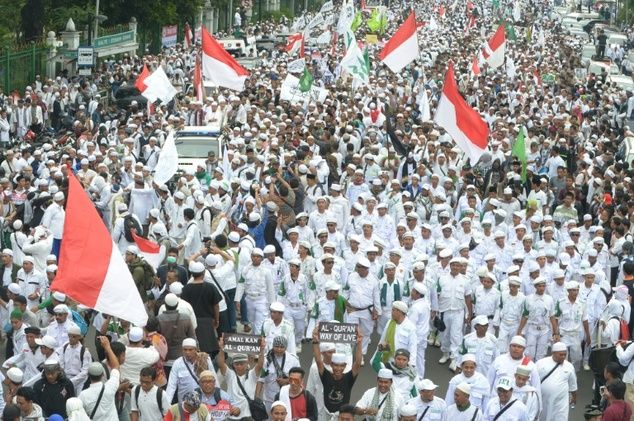There has been a great deal of concern about the increasing politicization of Islam in Indonesia, especially ahead of this year’s regional elections. After the the blasphemy charges against former Jakarta Governor Basuki “Ahok” Tjahaja Purnama were successfully politicized through massive demonstrations that eventually led to his defeat in the election and imprisonment, many observers have expressed concerns that religious-based attacks would be used with increasing frequency to achieve similar political goals in future elections.
The Indonesian Ulema Council (MUI), the country’s highest Muslim clerical body, says that they do not want their institution used by any politician to gain support in the upcoming 2018 regional elections while also asking that other Islamic organizations remain neutral and not voice their support for any particular candidates.
“When it comes to matters of [political] support, then MUI appeals to the public not use MUI or any other Islamic mass organization,” said MUI deputy secretary general Nadjamuddin Ramli to CNN Indonesia yesterday.
Many argued that it was MUI who legitimized the religious-based attacks on Ahok by releasing a fatwa declaring him guilty of blasphemy, which led to the formation of an alliance of hardline Islamic groups called ‘The National Movement to Safeguard the Indonesian Ulema Council’s Fatwa’. MUI eventually distanced themselves from the hardliner groups organizing the anti-Ahok protests and recommended that their followers not join the demonstrations (to little evident effect).
Nadjamuddin said they want the next elections to run in peacefully without anybody using MUI’s name, especially in their campaigns. He also called on other Islamic groups to not get involved in politics.
“Islamic organizations are not political parties, the vision and mission of Islamic organizations is to empower their members,” Nadjamuddin said.
MUI secretary Anwar Abbas and MUI Vice Chairman shared similar sentiments, asking that candidates focused their campaigns on discussions of policies that would empower the people rather than attacking members of other religions or ethnic groups. They warned that such attacks, as well as the spread of fake news and hoaxes during the election, had the potential to create tensions and conflict before the elections.




